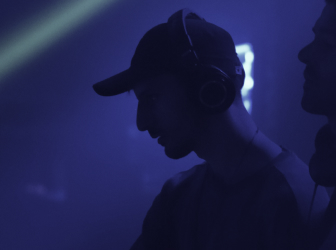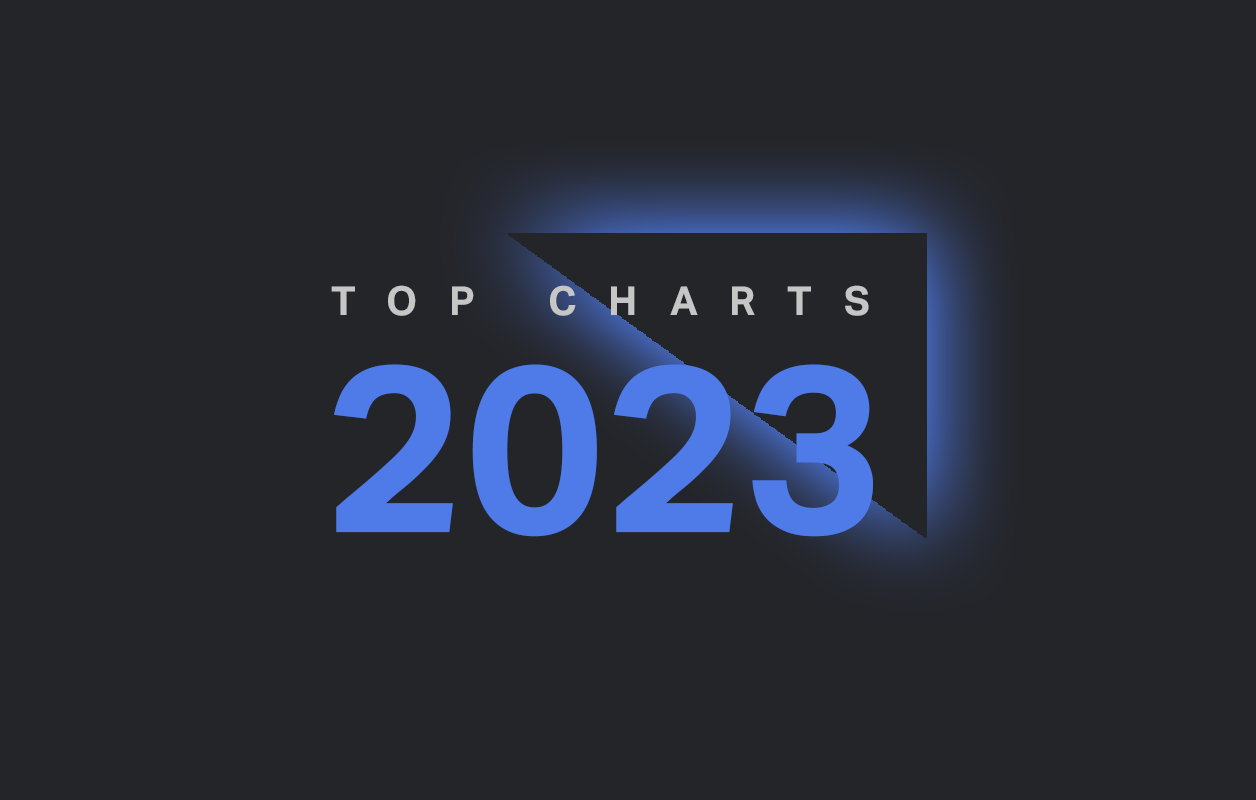The 10 Best Time Management Tips For DJs In 2025

The best time management tips are essential for finding the time to hone your DJ skills, build a great list of contacts, and develop your technical skill stack.
By setting clear goals and focusing on your priorities, you can use a schedule to advance your career and become the best DJ you can be.
In this guide, we’ve broken down the core strategies to consider when creating a time management program for your workflow.

The 10 Best Time Management Tips For DJs In 2025
Time management skills vary from person to person and will depend on the specific goals each individual wishes to achieve.
That’s why we’ve created this guide to cover the core principles of creating a to-do list, whether you’re booking gigs or learning production.
Now that you know our criteria, here’s our list of the 10 best tips for managing your time as a DJ in 2025:
10. Have Clear Objectives
The role of a DJ involves many different aspects, which also vary depending on the type of DJ you are, whether it’s a wedding DJ or one working in nightclubs.
This gives you plenty of scope for setting clear objectives and goals that match your particular DJing niche and interests.
You might be an experienced DJ playing in bars and restaurants who wants to move on to headlining in your local dance music nightclub.
If you’re a wedding DJ, your objectives might include expanding your list of networks to drum up more business and strengthen your reputation.
Alternatively, if you’re interested in becoming a DJ producer, you’ll need to research exactly what this entails and any software you’ll need to learn.
Whatever objective you decide on, it should be clearly articulated so you understand what it is you need to do to accomplish it.
From this objective, you can determine the important tasks you need to fulfilltoo move your music career forward and manage your time effectively.
9. Create A Schedule
One of the central aspects to consider when developing your time management skills is creating time blocks that give you enough time to cover your to-do list.
These time blocks can range from daily tasks, such as managing social media, to infrequent events, such as booking studio time.
Ifyou plang on developing your DJ skills, you should block out time in your scheduleto practiceg the techniques you wish to learn.
If tasks depend on other people, then your schedule needs to fit around theirs, whether it’s working with clients or collaborating with artists on tracks.
Being a successful DJ requires wearing many hats for different occasions, and a great schedule helps youbalancet your responsibilities accordingly.
If you’re honing your scratching skills, you’ll want to practicedailyy to ensure muscle memory and repetition are fully effective.
Conversely, catching up on the latest releases from your favorite record labels might be something you schedule on a weekly basis.
8. Invest In Software
There are lots of great programs that allow DJs to become more productive and optimize their time, whether it’s for music production or marketing.
DJs looking into expanding their skills to include music production will need to invest in a digital audio workstation (DAW) and learn how to use its tools.
This means developing a production workflow focused on the best ways to create a track and stay focused on creating new music.
When choosing the best software to help with your time management and workflow, it can be easy to install a variety of tools for various roles.
However, this can lead to too much time simply mastering the programs, so it’s worthwhile trying to simplify the software you opt for.
If you’re spending hours each week just learning how to use a digital audio workstation, it could get in the way of your creative process and hamper your chances of success.
To prevent this from happening, research your options before committing to a particular program, so you know it’s capable of giving the results you’re looking for.
7. Consider Outside Influences
One of the common pitfalls among DJs is getting into a rut and becoming bored with the songs they’re playing to the point where DJing feels mundane.
The same problem can also apply to creating music, hitting a block, and struggling to get the results you’d hoped for when setting goals.
To counteract this, you should always seek inspiration from outside sources, whether they are great producers you admire or friends and colleagues.
A good way to expand your musical horizons and discover new tracks for your sets is to sign up for a DJ pool, where exclusive content is regularly uploaded.
If you’re working on perfecting a new technique as a DJ, recording your sets and sharing them with other DJs is a great way to gather feedback.
The same goes for music production, where constructive criticism from fellow music producers and fans can help you improve.
Remember, getting feedback and exploring outside influences is ongoing, so treat it as such rather than a one-off event.
6. Avoid Distractions
One of the best time management tips any DJ can take on board is to avoid any distractions that may take them away from working towards their goals.
Putting together a well-considered schedule is one way to keep these distractions to a minimum, for example, by creating a calendar for meetings.
When you set goals, you need to be sure that you’re dedicating the necessary time and, equally important, attention to working towards achieving them.
If you’re currently focusing on producing new music, then you’ll want to create a space where friends or family members aren’t going to interrupt you constantly.
This extends to managing your time spent online, such as switching off your social media pages and turning off smartphone notifications while you work.
DJs and music producers often struggle to turn off their internal critic and become preoccupied with the details instead of focusing on the bigger picture.
Each of these red flags can be avoided by instilling a strict sense of discipline, keeping a close eye on your to-do list, and keeping distractions to a minimum.

5. Grow Your Network
As the saying goes, “Many hands make light work,” so building a strong network is a great way to better organize your time and share responsibilities.
Networking is a core consideration for all DJs and helps them advance their careers by building industry contacts and opportunities to work.
It begins with putting together a DJ press kit, which can be sent out to prospective clients, booking agents, and other people, such as online influencers.
If you’re hoping to get musicians involved with your sets, this network will also help you to draw in a larger audience when you perform your next set.
It could also include reaching out and hiring a manager who can take control of some of the daily tasks, such as booking a recording studio or DJ slots.
Networking also means dedicating time to your social media channels and joining groups on platforms such as Facebook and Discord.
Staying connected with a diverse mix of people will also keep you in the loop on any upcoming events of interest and put you in touch with industry professionals.
4. Use Technology To Save Time
With artificial intelligence and machine learning reshaping the future of DJing, technology can significantly improve your DJ time management.
Whether taking your first step on a new project or planning for a packed line-up of gigs, working with a digital calendar can help manage your time.
There are plenty of free digital calendars to choose from, with Google Calendar integrating with other services such as email and conference call software.
Such calendars can be customized to include color coding and notifications to help you keep track of your time blocks and upcoming tasks.
Alternatively, if you aim to enhance your online presence and build a loyal social media following, tools such as Hootsuite can be a game changer in this field.
Most people spend a lot of time putting together and responding to posts, but this can be streamlined significantly with the right applications.
Over time, you can drastically reduce the time you spend on mundane tasks and regular routines by using the best tools for the job.
3. Outsource Tasks
If you’re not quite at the point in your DJ career where you can justify hiring a full-time manager to help with your schedule, you can still outsource tasks.
Hiring a virtual assistant is a great way to do this cost-effectively, paying them either hourly or by project to help clear your schedule.
For example, if you need to compile a spreadsheet of venues you wish to approach, a virtual assistant can work through sending inquiries to these contacts for you.
It’s easy to track progress on such tasks yourself, for instance, by working with shared Google Document files with notifications for any updates.
Likewise, a virtual assistant is a good way to speed up your social media page management and keep up to date on responding to comments.
If you’re producing music, you could consider outsourcing the mastering process to a dedicated sound engineer with the equipment needed to do this professionally.
While outsourcing lots of tasks can cost a lot of money, it’s worth considering if it frees up more time for fulfilling creative endeavors.
With the rise of AI-powered virtual assistants, taking advantage of their services will soon be possible without the associated costs.
2. Monitor Your Health
Knowing when to take a break is as important as understanding the optimal time to work through your to-do list and is crucial for maintaining your health.
As any gigging DJ knows, running between venues and working late nights can take its toll, particularly if you mix business with pleasure.
There are several ways a DJ’s mental health can be managed and improved to ensure you’re performing at the top of your game and not burning out.
As with most activities, you should develop a healthy work-life balance, so you have the time to rest and recuperate when necessary.
The best case scenario is planning your time so that burnout doesn’t become a problem, getting plenty of rest, and maintaining a good diet and exercise regime.
If you do experience mental or physical health issues, you should seek medical or other professional help to get on top of the problem as soon as possible.
Cutting down on alcohol and other substances will also go a long way to significantly improving your overall sense of well-being if these are currently part of your lifestyle.
1. Stay Flexible
While a clear schedule helps with your overall time management, it can also become an obstacle to success if you adhere to it too rigidly.
It’s also important to integrate flexibility into your schedule, allowing you to take advantage of opportunities or switch focus when you hit a roadblock.
Gigging DJs have to deal with fluctuating energy levels, mainly when performing over consecutive nights at different venues.
Flexibility allows you to manage your energy and focus so you can shift attention towards or away from tasks depending on how refreshed you are.
It also means you can switch tracks whenever new opportunities or challenges arise that might advance your music career or list of industry contacts.
While it can be tempting to view time management as an all-encompassing set of rules, introducing flexibility allows you to seize the moment.
Summary
We hope you’ve found this overview of time management for DJs an informative resource that can help you optimize your energy and performance.
Each individual requires their own unique schedule, but the general rules and principles outlined here will apply to a wide range of circumstances.
Whether you’re working with music producers or expanding your list of contacts to develop your music career, these steps will help you succeed.
Find inspiration, access the latest releases with a ZIPDJ pool subscription, and discover the latest hit releases from the world’s biggest acts.
Not a member ?
Join Today for Unlimited Music Downloads. Visit zipdj.com for more information.



